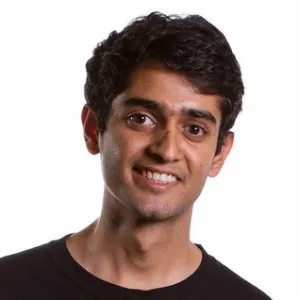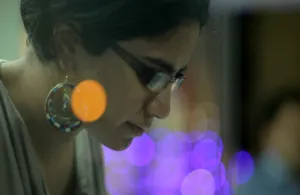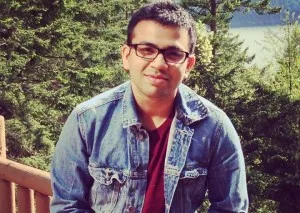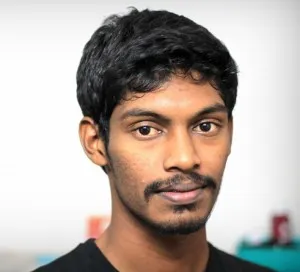[YS Lounge] Four compelling stories of LGBT achievers
One meaning of the word ‘gay’ in the Oxford dictionary is ‘light-hearted and carefree’. Unfortunately, since the Supreme Court overruled the Delhi High Court order of 2009 and criminalized homosexuality once more in India, the gay community has been anything but light hearted.
But fortune favors the brave, and we at YourStory have always believed in the power of goodness. Recently we spoke to four proud and out young achievers who are leading the campaign for LGBT rights, and are themselves a big source of inspiration to others in the community.
Saluting the fighting spirit of Nitin Rao

Nitin Bantwal Rao was just another curious kid who grew up in Bangalore and Pune. He had a keen interest in mathematics and an inclination towards learning new things. After getting an IT degree from NIT-Surathkal, he moved on to pursue his interest in human rights and primary education. Later on to startups. An MBA from MIT Sloan followed soon and the journey rests at a tech startup in Silicon Valley for now.
However, despite his achievements he was at a loss to explain to people around him that he was gay. “I was always attracted to men but unfortunately, with our heterosexual vocabulary and cultural mindset it was extremely difficult for me to explain my identity to my parents and close friends. When I told my parents finally, they even tried convincing me that it is a medical problem. I am surprised to see this kind of ignorance. “
According to Nitin, since not many LGBT people are vocal about their identity, the community at large lacks role models.
Unfortunately, his own college had many homophobic students who would use abusive language against LGBT folks. However, he says colleges like Manipal and Law School Hyderabad had a better culture and acceptance for LGBT students.
Nitin believes that coming out in public is an act of bravery but the decision to do so should be the person’s choice. He feels the younger community members are more open compared to the older generation. “As a society, we have to be encouraging towards people who want to come out in public. Next time you find someone saying something wrong about a gay or lesbian, it is your duty to call them and educate them.”
In year 2010, Nitin helped found Equal India Alliance, a small non-profit led by Tushar Malik, which recorded 300 videos of Indians voicing their support for LGBT rights as part of the ‘I, Ally’ campaign.
Vidya Pai, an investment banker turned entrepreneur and LGBT activist

Unlike many others who realize they are gay early in their life, for Vidya it was not until her late 20s that she realized and came to terms with her bisexuality. Vidya says, “Unfortunately, people relate the sexuality to behavior whereas it is our identity and not otherwise.”
Vidya has been an activist supporting multiple causes throughout her life. Issues pertaining to LGBT rights, women rights & animal welfare have been very close to her heart. Once her pictures appeared on the front page of one of the leading newspapers since she was supporting the LGBT rights as an activist. This incident gave her family and friends, some amount of doubt that she belongs to LGBT community though by that time, she did not discover it herself. Her friends and cousins didn’t give any reaction when they learnt about her bisexuality.
Vidya, who was an investment banker at CitiBank, cites two main reasons why people do not want to come out. “The first is the social aspect. Why would a person become outspoken about his or her identity when society considers them demons? People are not sure if there are other LGBT folks around because nobody is coming out. Visibility among media and communities will only boost their confidence and help them in being vocal about their identity. The second reason is the legal aspect. The recent verdict by hon’ble Supreme Court of India has left the LGBT community in a state of shock and insecurity.”
Vidya adds that “bringing religious beliefs into the picture is risking too much and complicating the situation. We must work towards social inclusion instead.”
Calling people from the community to accept themselves first, she says, “It is all about who I am. I did computer engineering but chose to be an investment banker, and now find myself more close to hospitality sector. I have been doing it out of belief and certain amount of self confidence. We should be true to ourselves and not let others tell us who we should be or what we should do.”
Bharath Jayaraman: From human resources to human rights

Bharath Jayaraman is a ‘Learning and Development Specialist’ at Amazon with a masters degree from Cornell University. He has worked for organizations like Google and Wipro as well.
Speaking about being gay, he says, “After a long period of denial, when I got access to resources and exposure through internet, I came to terms with my identity. I must admit that I was luckier than most homosexual people when it came to the reaction from family and friends. There has been absolutely no problem at work as well.”
Nevertheless, Bharath understands that it is not easy for everyone to come out and be vocal about their LGBT identity because of the fear of rejection. He adds, , “People from the LGBT community fear that if they come out some elements of society may even harm them physically. However, I can only say that sometimes society’s bark is worse than the bite and that this fear is only going to make people withdraw into their shell.”
Bharath feels the LGBT community is not represented in top positions whether it is in the government or corporates which is why it is important that more people come out in the open about their sexual identity. Citing the example of the fashion industry, he says because there is general acceptance, people are not afraid to come out and pursue their dreams.
Shankar Ganesh using internet to help LGBT community

Shankar hails from Tuticorin, a small place in Tamil Nadu. He was an above average student and a techie at heart from his school days. Shankar realized early that he is gay. He was constantly looking for more information on the subject. “Those days there used to be news about same sex people kissing in public on the internet,” he recalls. But it was the social networking platform, Orkut, which put him in touch with other gay people. He decided to meet some of them but everyone from the online gay community whom he met in Chennai claimed to be bisexual. This led him to depression and he lost all hope of finding a gay mate for himself.
Shankar says he would constantly question himself whether society would accept him? How will his parents react?
In a conversation with his father he was told that he could be medically cured. He retorted by saying, “Does that mean even you can become homosexual if treated medically.” In his case, Shankar says, he could at least resist his father because he had informed himself that homosexuality is not a medical condition. But in rural areas the situation is very grim for people from the community. “Unfortunately many Tamil newspapers did not even carry any debates or discussions on Section 377.”
Shankar adds that there is also very little understanding of the emotional side of gays. “It is not only about sex or physical attractions.” However, he believes that society and the medical community need to be supportive about the gay cause.
As a result of his situation and his constant bouts of depression his productivity at work took a beating. Nevertheless his current job at Freshdesk has been a great experience for him and his colleagues are extremely supportive.
“When we pride ourselves on inclusiveness, we should treat all sexes equal. We should understand that talented people are always going to lead and if we do not respect the talent from LGBT community, they will very well leave this country for opportunities elsewhere.” He urges everyone from the LGBT community to read a lot on the internet and seek a professional counselor if possible. It will not make things better but it will make them stronger.
You can also pledge your support to the LGBT community at itgetsbetter.org
...
One positive thing which came out while speaking to the four people I interviewed was that they were able to assert their identities in their professional lives. Unfortunately, this is easier said than done in our society where we proudly worship ‘ArdhaNarishvara’ (composite androgynous form of Hindu god Shiva and his consort Parvati) and simultaneously question the existence of a third gender. I do hope, however, that with role models such as those featured in this story, we will progress to a world where being gay or lesbian or bisexual or transgender or straight gives no unfair advantage or takes any privileges away on account of your identity.


![[YS Lounge] Four compelling stories of LGBT achievers](https://images.yourstory.com/cs/wordpress/2013/12/Vidya-Pai.jpg?mode=crop&crop=faces&ar=16%3A9&format=auto&w=1920&q=75)




